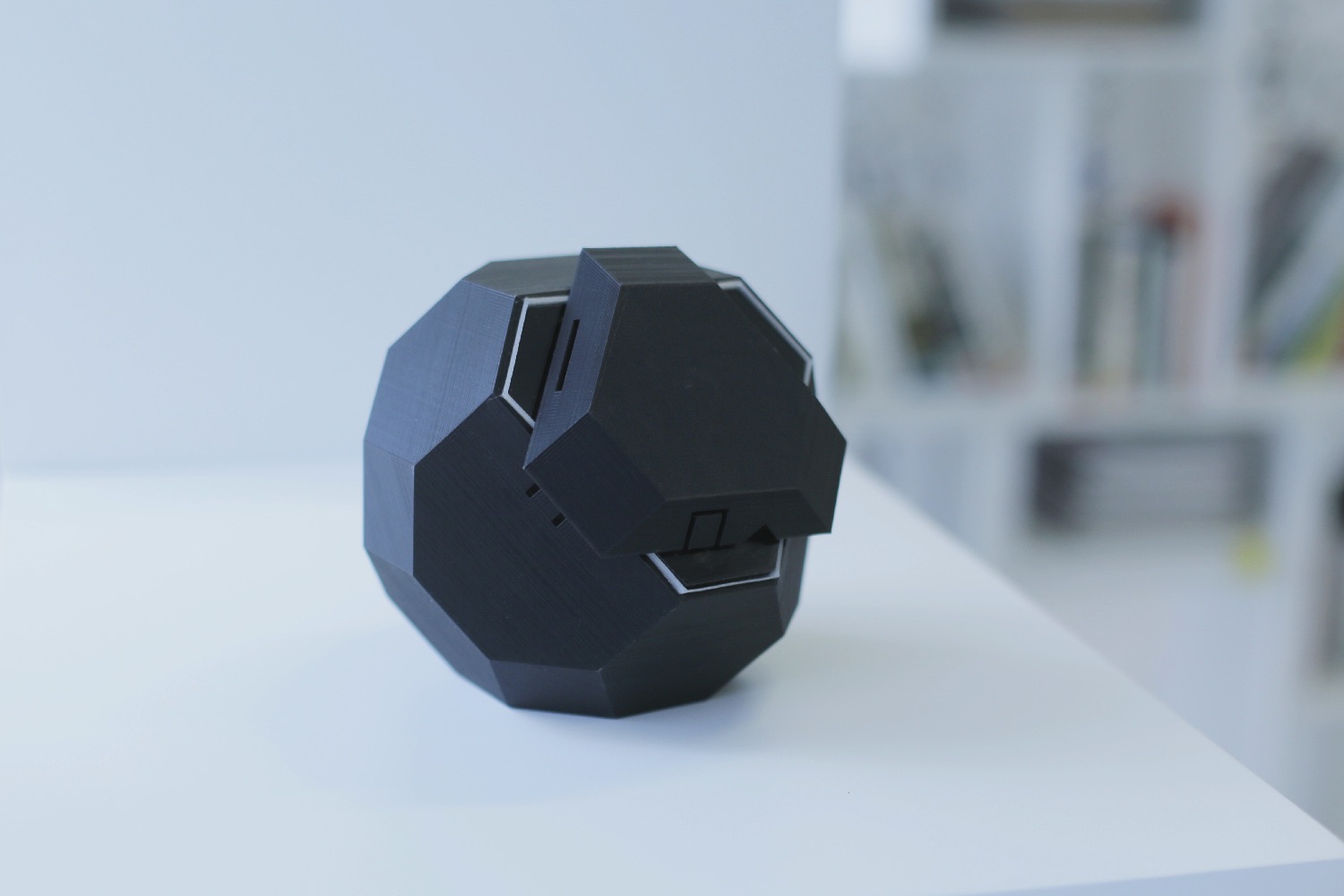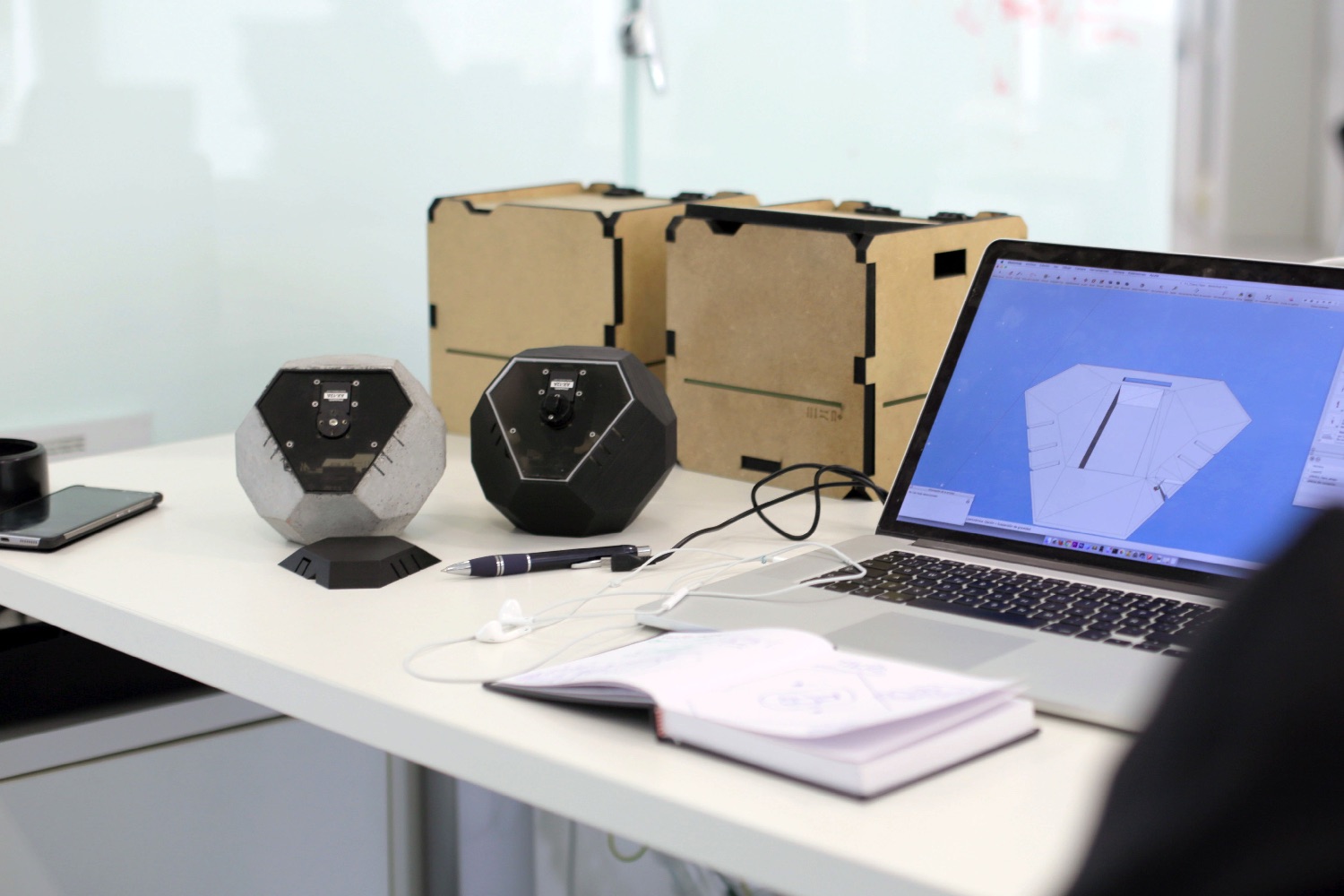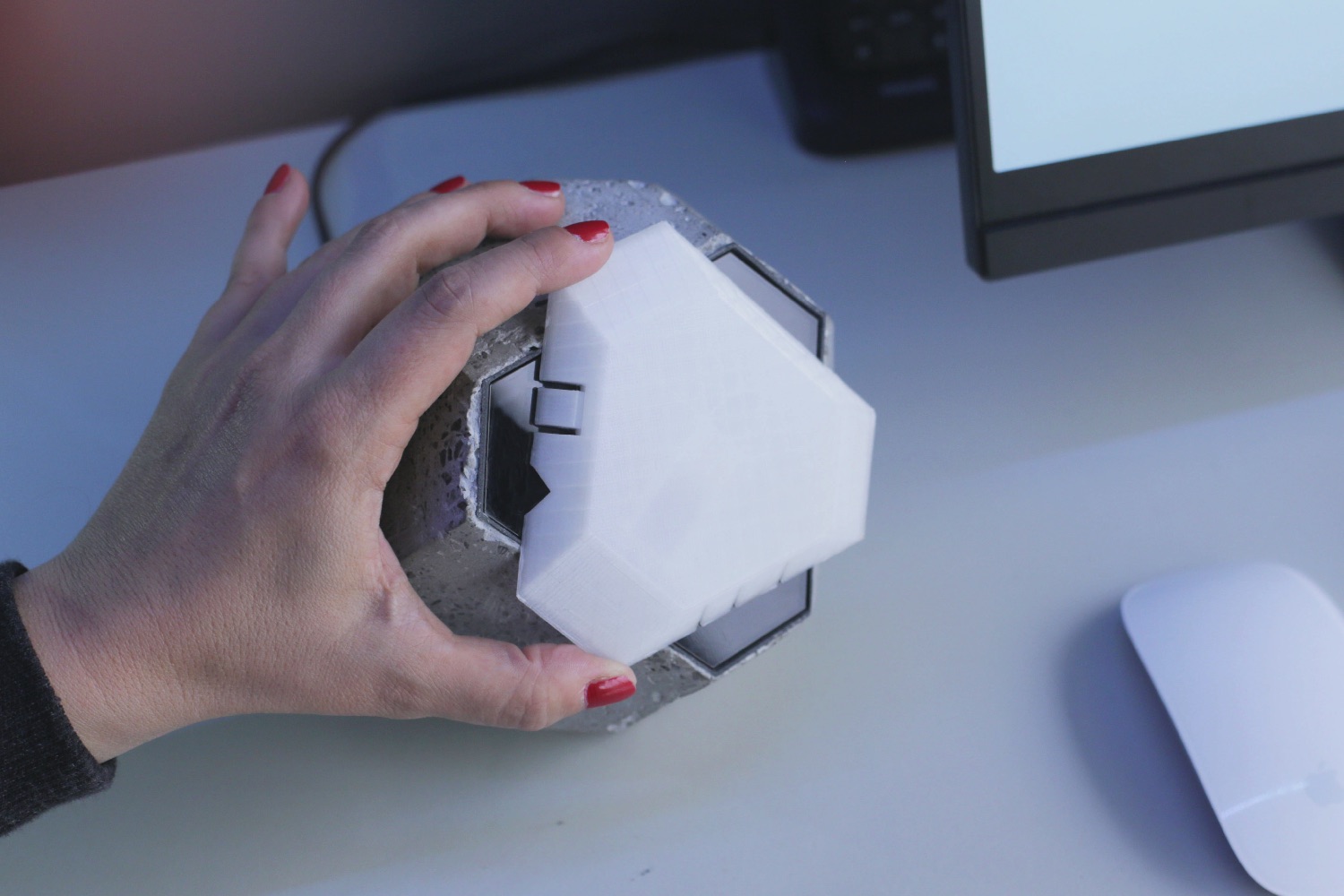That’s something a nifty piece of hardware created by Spanish designers Roman Torre and Angeles Angulo hopes to address. What they’ve developed is a 3D-printed prototype of a desktop device, called Thero, that allows users to switch between encrypted communication methods simply by turning a dial.
“The idea is that everybody that has Thero will be aware of the importance of their own data and privacy,” Torre said. “Through the physical manipulation of the device we believe that is easier to [experience] … privacy, compared to solutions already available in the market, which are based exclusively around software. Those can be too abstract and tricky for the current medium internet user.”
Thero boasts four different privacy settings: one that offers mostly open internet access; another for total encryption using the Tor network; another that blocks social media; and a “total blackout” mode which only lets users navigate using an internal web server. Switching between these modes is as easy as using the click wheel on an old-school iPod to switch between songs. When users switch modes, they even receive a visual reminder on-screen to let them know of how they’re currently protected — or not protected. The device itself is powered by way of a Raspberry Pi 3, and programmed using Python.
“For now, this is just a concept, a prototype that is working but not for a commercial use,” Torre said. “We are now developing a better software solution, and we are open to proposals or new ideas to implement. We are also interested in bringing it to market. We would like to work with other collectives who are interested in finding the best applications for it.”





